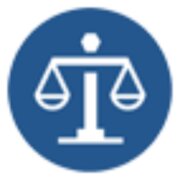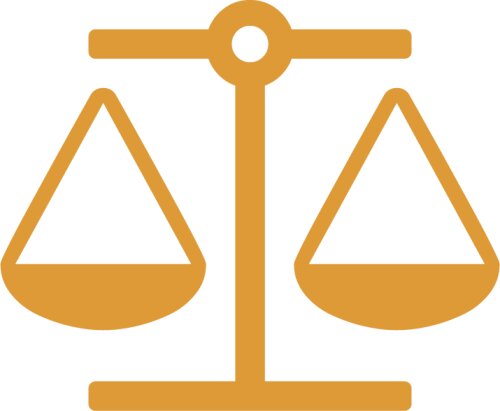Best E-commerce & Internet Law Lawyers in Kinshasa
Share your needs with us, get contacted by law firms.
Free. Takes 2 min.
List of the best lawyers in Kinshasa, DR Congo
About E-commerce & Internet Law in Kinshasa, DR Congo
E-commerce and Internet Law in Kinshasa, DR Congo, is an evolving field that addresses the legal issues arising from online commercial activities conducted through electronic means. As the digital economy in the region grows, local laws are being developed to regulate various aspects of e-commerce, including data protection, electronic transactions, consumer rights, and digital marketing practices. Understanding these laws is crucial for businesses and consumers alike to navigate the online marketplace effectively and legally.
Why You May Need a Lawyer
Engaging a lawyer specializing in E-commerce & Internet Law may be necessary for several reasons:
- Establishing an online business and ensuring compliance with local e-commerce regulations.
- Drafting and reviewing terms of service or privacy policies to protect your business and customers.
- Handling disputes related to online transactions, such as breach of contract or fraud.
- Ensuring data protection and privacy regulations, such as the General Data Protection Regulation (GDPR), are met.
- Navigating intellectual property issues, including copyright and trademark infringements on the internet.
- Dealing with issues related to digital marketing, including adherence to advertising standards.
Local Laws Overview
Key aspects of local laws in Kinshasa applicable to E-commerce & Internet Law include:
- Electronic Transactions Law: Governing the conduct of electronic transactions and ensuring their legal recognition.
- Consumer Protection Laws: Protecting consumers engaged in online transactions, focusing on unfair practices and misinformation.
- Data Protection Regulations: Enforcing standards for data handling, storage, and sharing to protect individuals' personal information online.
- Intellectual Property Rights: Addressing the protection of digital content and trademarks in cyberspace.
- Cybersecurity Laws: Implementing measures to combat cybercrime and ensure safe online environments.
Frequently Asked Questions
What is the current law on electronic signatures in Kinshasa?
Electronic signatures are legally recognized in Kinshasa, provided they meet specific criteria ensuring their authenticity and the integrity of the signed document.
Do online businesses in Kinshasa need to comply with GDPR?
Yes, if they collect or process personal data of individuals located in the European Union, they must comply with GDPR, underlining the importance of having appropriate measures for data protection and privacy.
What are the legal obligations regarding consumer rights?
Businesses must provide clear information about products, services, and prices, ensure fair contract terms, and have procedures in place for handling complaints and returns.
How can I protect my online business's intellectual property in Kinshasa?
Register copyrights and trademarks locally and monitor for infringements, using the legal system if necessary to enforce your rights.
Is there a legal requirement for privacy policies on e-commerce websites?
Yes, businesses are required to have a privacy policy that complies with data protection laws by outlining how they collect, use, and protect customer data.
What should I do if I encounter a data breach?
Promptly report the breach to local authorities and affected individuals, and take steps to mitigate the breach while ensuring future protections are enhanced.
Are there any specific rules for digital marketing in Kinshasa?
Marketing practices must comply with consumer protection laws, ensuring that all advertising is truthful and non-deceptive.
How does the law address fraud in online transactions?
The law provides mechanisms to address fraud, including legal actions against perpetrators and protections for victims.
What legal recourse do I have if my online payment is disputed?
Contact the seller to resolve the issue first, and if unresolved, seek legal assistance to explore further actions like chargebacks or filing a complaint with authorities.
What steps can be taken to secure an e-commerce website legally?
Implement robust security measures for data protection, routinely update software, and ensure compliance with cybersecurity regulations.
Additional Resources
The following resources offer valuable support and information related to E-commerce & Internet Law in Kinshasa:
- Ministry of Posts, Telecommunications, and Information and Communication Technologies: Oversees regulations concerning e-commerce and internet law.
- National Agency for the Promotion of Information and Communication Technologies (ANAPI): Provides information on digital entrepreneurship regulations.
- Civil Society Organizations: Various local NGOs can provide legal assistance and advocacy related to digital rights and consumer protection.
- Local Law Firms: Consulting with a law firm specializing in technology law for personalized legal advice is highly recommended.
Next Steps
If you need legal assistance in E-commerce & Internet Law:
- Identify the specific legal issue you are facing, ensuring you have all relevant documents and information.
- Research and reach out to lawyers or law firms in Kinshasa that specialize in E-commerce & Internet Law.
- Schedule consultations with multiple lawyers to discuss your case and evaluate their expertise, approach, and fees.
- Select a lawyer who best suits your needs and finalize a legal strategy to address your concerns effectively.
- Continue to stay informed about developments in e-commerce law to ensure ongoing compliance as your business grows.
Lawzana helps you find the best lawyers and law firms in Kinshasa through a curated and pre-screened list of qualified legal professionals. Our platform offers rankings and detailed profiles of attorneys and law firms, allowing you to compare based on practice areas, including E-commerce & Internet Law, experience, and client feedback.
Each profile includes a description of the firm's areas of practice, client reviews, team members and partners, year of establishment, spoken languages, office locations, contact information, social media presence, and any published articles or resources. Most firms on our platform speak English and are experienced in both local and international legal matters.
Get a quote from top-rated law firms in Kinshasa, DR Congo — quickly, securely, and without unnecessary hassle.
Disclaimer:
The information provided on this page is for general informational purposes only and does not constitute legal advice. While we strive to ensure the accuracy and relevance of the content, legal information may change over time, and interpretations of the law can vary. You should always consult with a qualified legal professional for advice specific to your situation.
We disclaim all liability for actions taken or not taken based on the content of this page. If you believe any information is incorrect or outdated, please contact us, and we will review and update it where appropriate.











